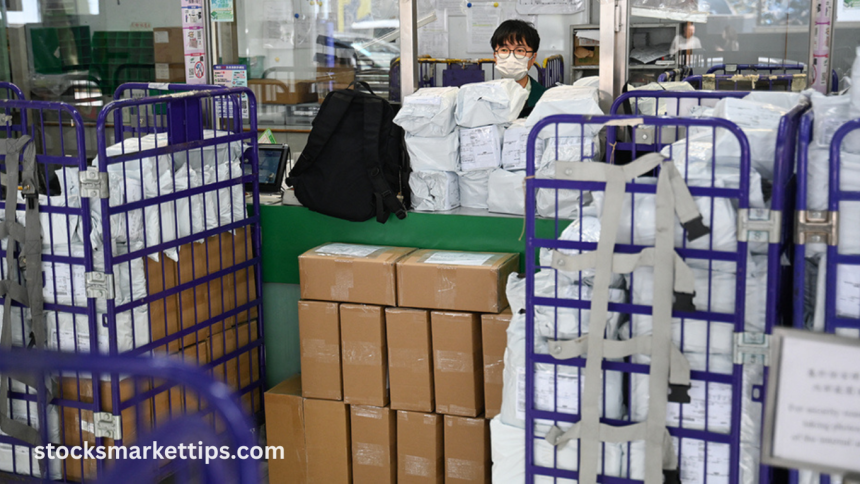Hong Kong’s postal authority recently made a significant move by suspending all package postal services to the United States. This decision comes as a direct response to increased trade tensions sparked by the tariff hikes introduced by former President Donald Trump. The tariff adjustments affected a wide range of goods, creating ripple effects across international shipping networks and prompting concerns among global businesses.
Rising Costs and Logistical Pressures
Postal services, already burdened by mounting operational costs, found themselves unable to absorb the additional financial strain. Shipping packages to the US suddenly became less viable, especially for government-subsidized services. The change hit small businesses and individuals particularly hard, as many relied on affordable postal options to maintain transpacific trade and personal communication.
Read More : Stocks close out choppy day after Trump calls for ousting Fed Chair Powell
Impact on E-Commerce and Trade Flow
E-commerce vendors in Hong Kong who depended heavily on US-based customers were caught off guard. Without an efficient and economical way to send packages, many sellers found themselves needing to delay orders or seek alternative carriers with higher price tags. The broader effect extended beyond packages, disrupting trade flow and reducing competitiveness for Hong Kong-based online merchants.
Alternatives and Adjustments in the Market
Private courier companies began seeing an uptick in demand as senders scrambled for solutions. However, these services often came at a premium, making them inaccessible to all. Businesses began exploring regional markets and revisiting logistics strategies to adapt to the sudden limitations. Some turned to partnerships within Asia to diversify trade routes and lessen dependence on US-bound shipments.
Political Moves Influencing Postal Policies
The suspension clearly demonstrated how international politics can reach unexpected corners of everyday life. While postal services may seem separate from economic sanctions, they play a crucial role in maintaining cross-border connections. Hong Kong’s response underlined the complex interplay between diplomacy, commerce, and public service infrastructure.
Frequently Asked Questions
Why did Hong Kong suspend package postal services to the US?
Due to rising operational costs and recent US tariff hikes, Hong Kong Post found service unsustainable.
Does the suspension affect all types of mail?
Only packages are suspended; regular letters and documents may still be processed under international postal agreements.
When will the service to the US resume?
There’s no official timeline; resumption depends on trade conditions and postal service evaluations.
How are businesses responding to the suspension?
Many are turning to private couriers, adjusting shipping strategies, or exploring new regional markets for distribution.
Are private courier services still shipping to the US?
Yes, private couriers continue operating, though with higher costs and limited capacity in some cases.
Will consumers in the US face delays in receiving goods?
Yes, especially for items shipped from small businesses or individuals using Hong Kong Post.
How do tariff hikes influence postal decisions?
Tariff hikes raise overall costs, affecting shipping rates and the financial feasibility of international postal services.
Can senders request refunds for suspended packages?
Yes, affected customers can typically apply for refunds through Hong Kong Post’s official channels.
Conclusion
Hong Kong’s decision to suspend package postal services to the US underscores the broader impact of global trade tensions. E-commerce businesses, individual senders, and consumers are all adapting to the new logistics reality. With no confirmed timeline for restoration, companies must remain agile, seek alternatives, and closely monitor policy shifts that influence international shipping frameworks.




